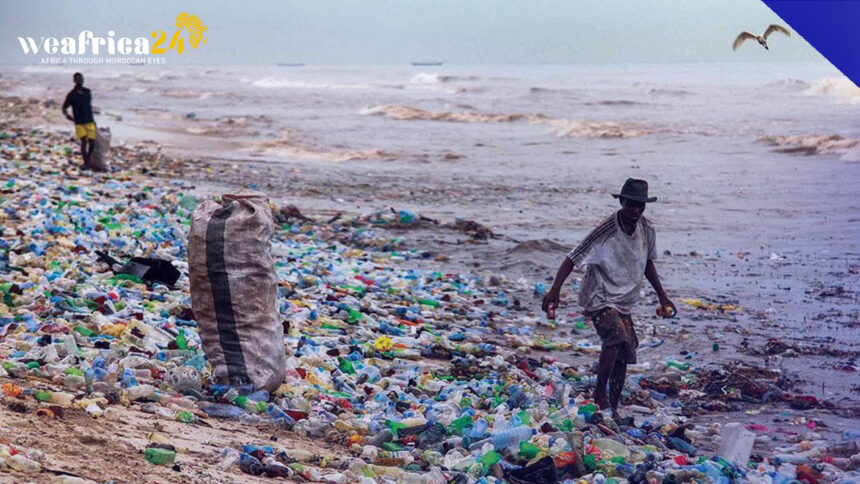From May 29th to June 2nd, 2023, representatives from 175 countries are meeting in Paris for the second session of negotiations on a future global treaty against plastic pollution. African civil society actors express their expectations during this meeting.
This May 30th, 2023 is the second day of international negotiations in Paris for a binding treaty against plastic pollution. “There is no time to lose”, French President Emmanuel Macron insisted the day before at the opening of this conference under the aegis of the United Nations.
A meeting that brings together many actors from African civil society. On May 29th, they sounded the alarm about the threat that plastic pollution represents for ecosystems and human beings.
From Congo to Cameroon, via Liberia or Nigeria, civil society actors have come to ask for action to put an end to this form of pollution, particularly in the marine environment.
“With Plastic Waste, We Can Do a Lot of Things”
“In all the oceans, in the rivers, we find plastic pollution, recalls Youbou Daldy, a member of the Congolese Association for Sustainable Development. Plastic pollution leads to the destruction of species, for example, fish. In the long run, we will have what is called the disappearance of species, of biodiversity in the marine environment. So we have a mission, all of us here, to support our states so that our children can see certain species that we would have preserved today”.
Ghislain Kwayeb Mbiada, from the NGO Youth in Action for Development, wants to turn the challenge of plastic waste clogging drainage systems and causing flooding in Cameroon into an opportunity. He emphasizes that plastic waste can produce biogas, paving stones to put on the ground and many other things. He also encourages young people to excel in the transformation of plastic waste, as it can generate jobs in the country.
The negotiations in Paris must lead to a text encompassing the entire plastic production chain with binding measures. This Monday, the United States indicated that it wanted a text that did not “demonize” this matter.







